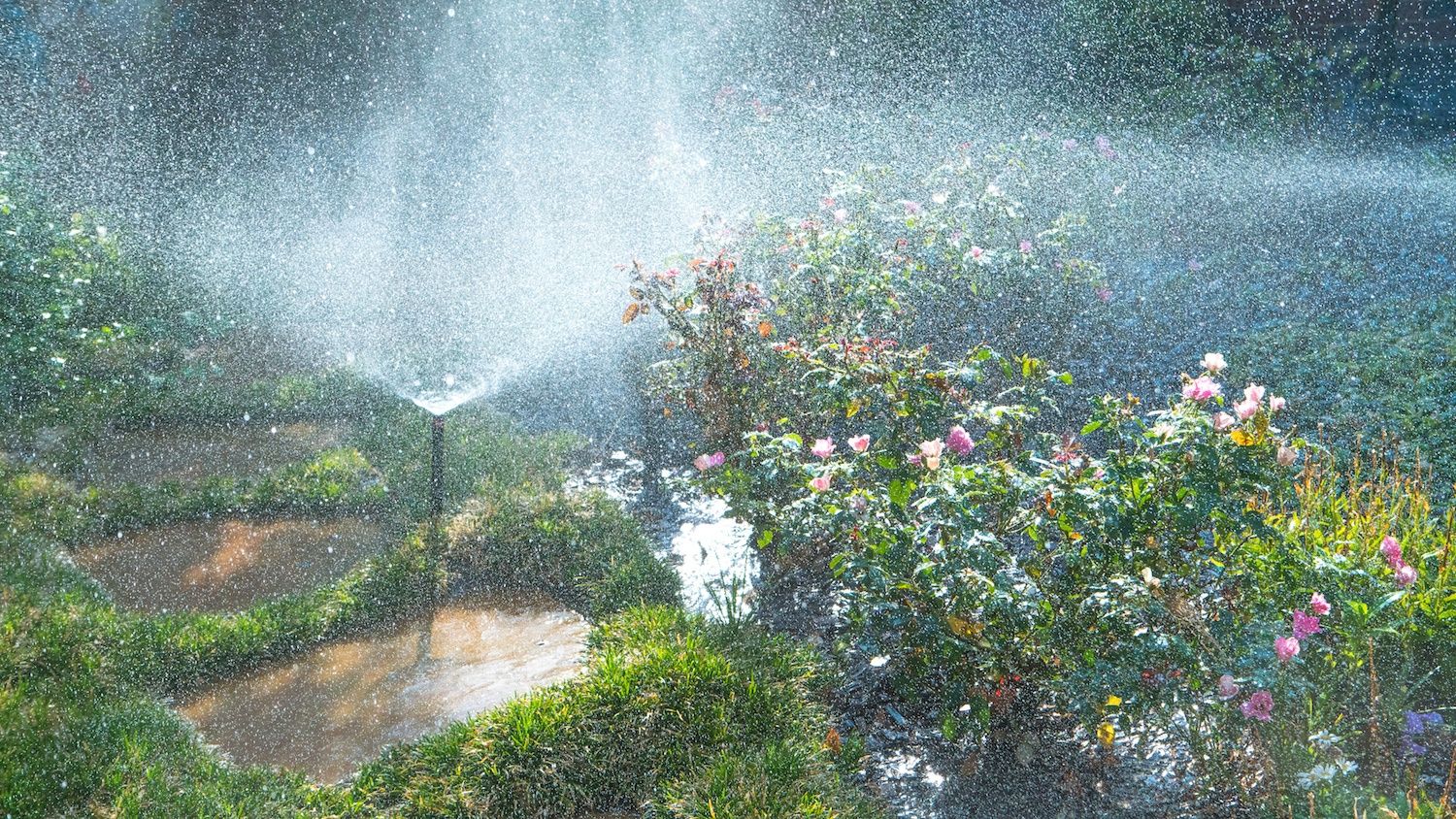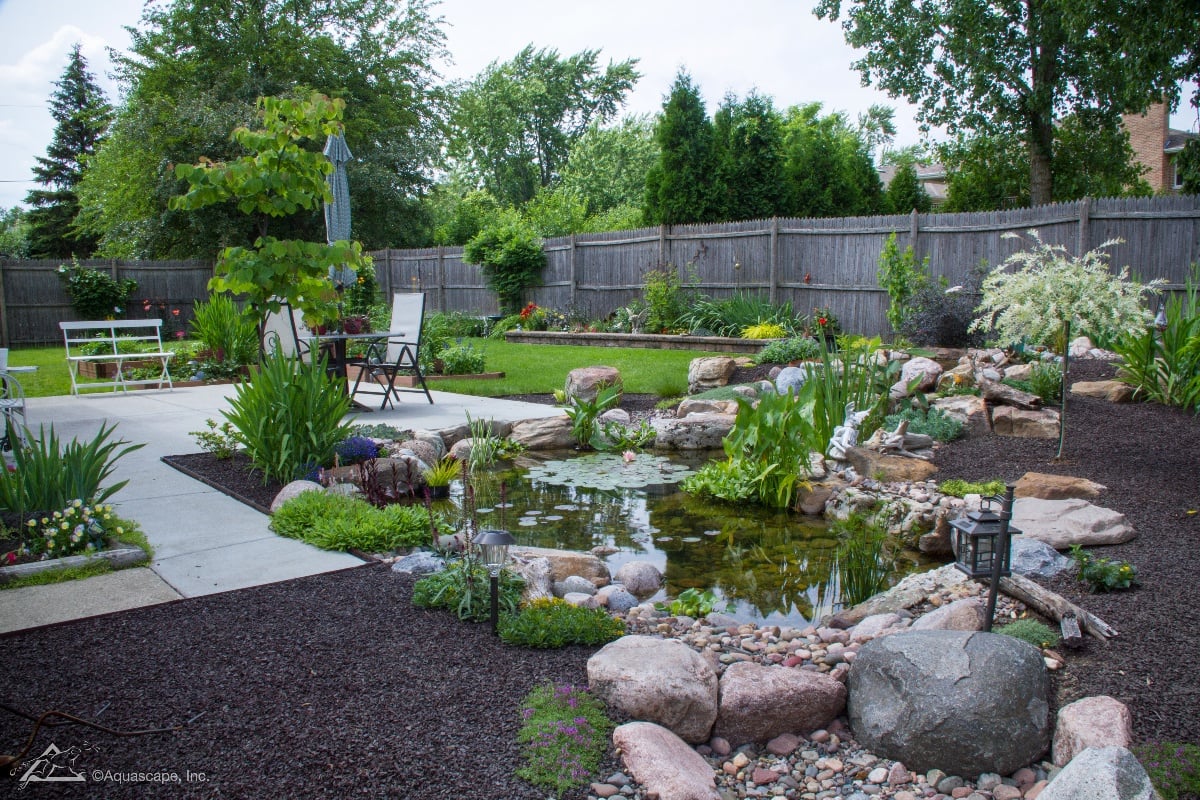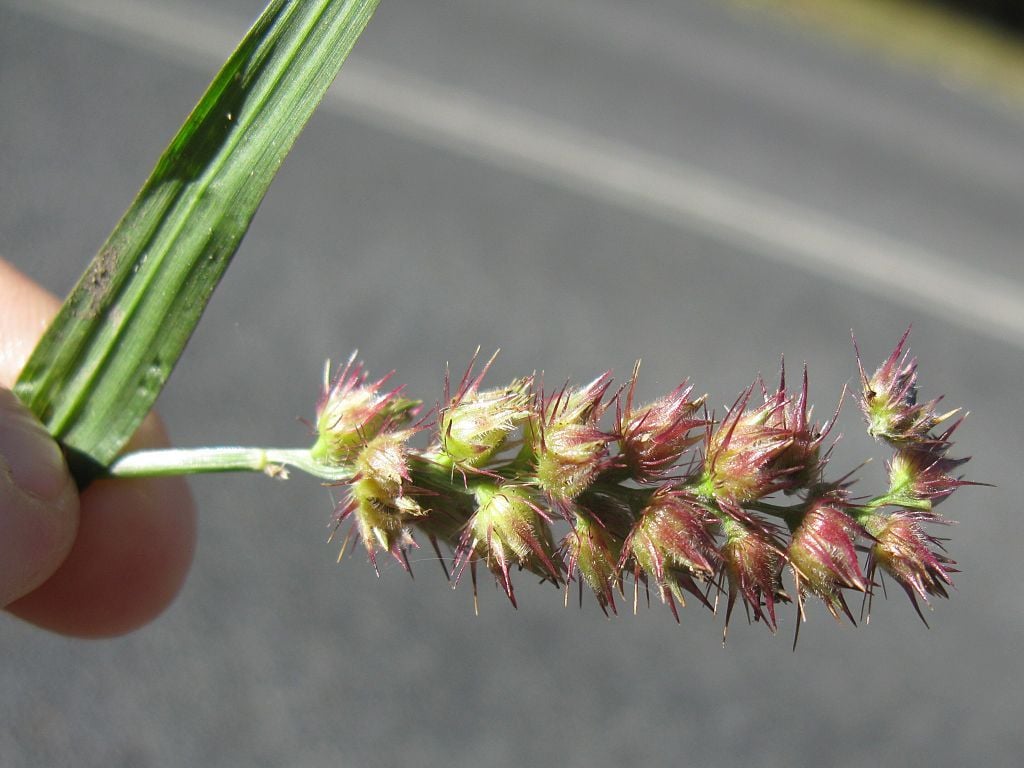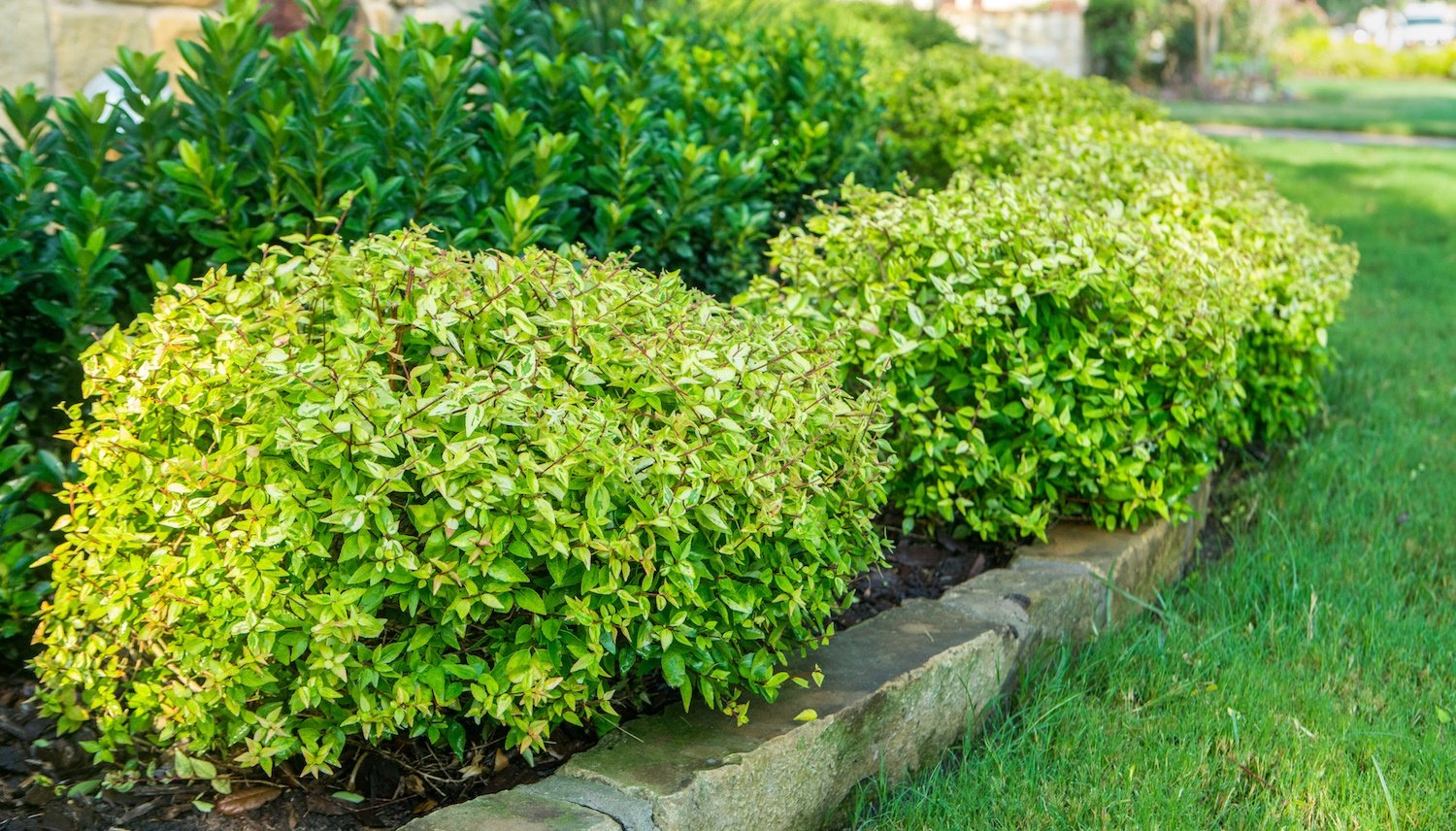Water is a precious commodity and because of that, it’s expensive. You understand this all too well if you’ve been hit with hefty water bills in the past (as most of us have!).
Here in North Texas, we know that wasted water drains our wallets. It can feel like a difficult topic to navigate. While we certainly never want to waste water, lawns and landscapes can perform poorly when they are deprived of water. It often feels like a delicate tightrope balance.
For that reason, it’s really important that we pay attention to ways to save water when watering your lawn or landscape.
To help you get started, we’ve rounded up some of our best water conservation tips for lawns and landscapes. We want you to learn ways that you can water your lawn efficiently (and your plants, too!).
Here are 4 tips to conserve water when watering your lawn and plants. Click on each tip to learn more.
- Water in the Early Morning
- Avoid Overwatering with an Irrigation System
- Save Water With Regular Irrigation Inspections
- Upgrade Your Sprinkler System
Getting the most out of your watering sessions will ensure that your lawn and landscape continue to thrive without wasting unnecessary water in the process.
1. Water in the Early Morning
First and foremost, it’s so important to pay attention to the time of day that you are watering.
Homeowners are sometimes surprised to learn that there is a “best time” to water the lawn. Many people assume that they can just water at any time but in reality, the optimal time is in the early morning.
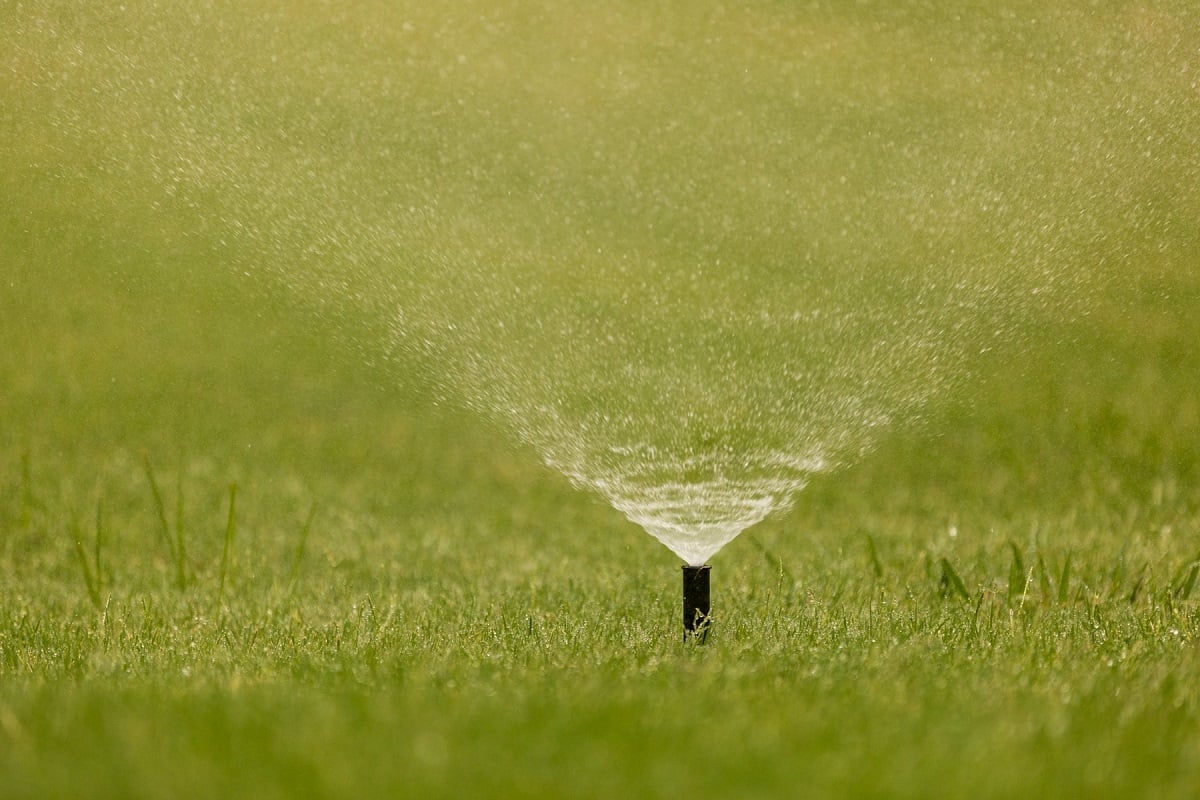
Watering in the early morning gives your soil enough time to soak in the moisture before the sun causes it to evaporate. The wind velocity also tends to be slower earlier in the day, so this also helps more water to make it down to the root zone where you want it to go.
One reason to avoid watering at night is that it can lead to lawn fungus. When water sits on the lawn overnight during the hot summers, it can create the optimal conditions for fungal growth.
2. Avoid Overwatering with an Irrigation System
When it comes to ways that you can save water when watering plants or the lawn, it seems obvious that you want to avoid overwatering. However, we find that homeowners often don’t have a good grasp on how much they’re supposed to apply.
At Grassperson, we closely follow the recommendations put out by Texas A&M AgriLife Extension, which are based on science—and a lot of research. For watering lawns, their recommendation is a minimum of one inch of water per week (via rainfall, irrigation, or a combination).
The same typically goes for landscape plants.
Most plants need around one inch of water per week, though they may require more during periods of drought. There can also be some variation depending on the type of plant material you have in your landscape. A landscape professional can help you get a good sense of how much to water.
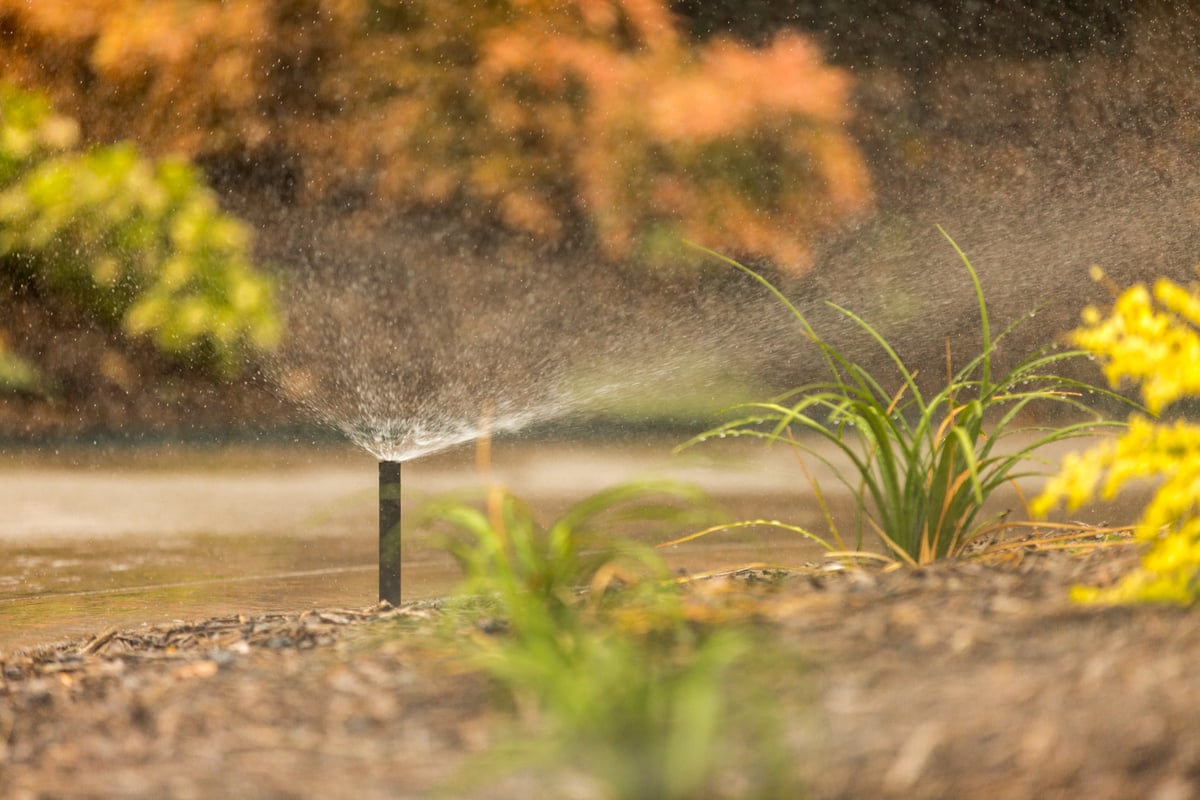
Of course, getting out there with a hose or sprinkler that you have to drag around is far from optimal. It’s a lot easier to achieve just the right amount of watering when using an irrigation system.
In fact, here in North Texas, where drought conditions are likely, it’s hard for lawns and landscapes to survive without irrigation. You can ensure that the system is set to water the proper amount.
That’s not to say that there will never be a problem. Overwatering a lawn or landscape usually happens as the result of a faulty irrigation system, a point that we’ll discuss next.
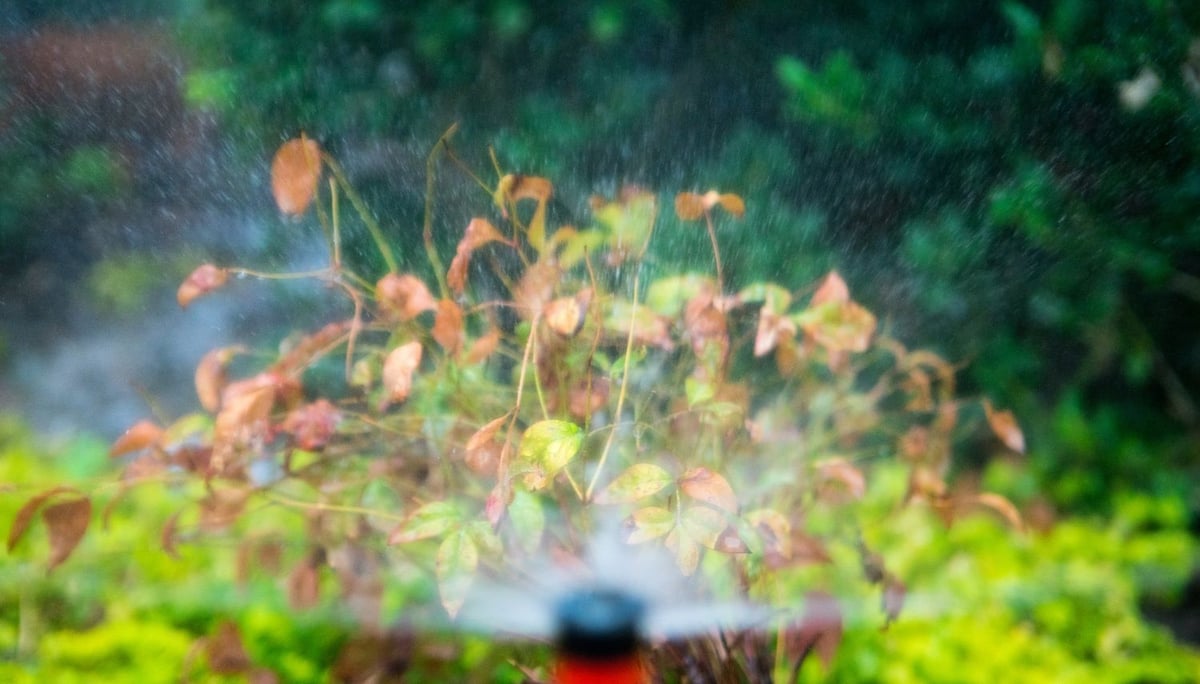
Overwatering is a problem because when soil is too wet, it can cause the plants to suffer from a lack of oxygen. This is true for both your lawn and landscape. When you water beyond your lawn or landscape’s needs, you are essentially drowning them. This can show up as yellowing. Sometimes the lawn also feels spongy.
Overwatering is also a waste of money. Any excess water that you’re putting down that’s not actually needed is money out of your pocket.
3. Save Water With Regular Irrigation Inspections
Another really important way that you can practice good water conservation is to make sure that your irrigation system is functioning properly. This can be achieved with an irrigation inspection.
One of the first things we’ll determine during an inspection is whether your system has adequate coverage to support the plant life and the lawn that you have growing on your property.
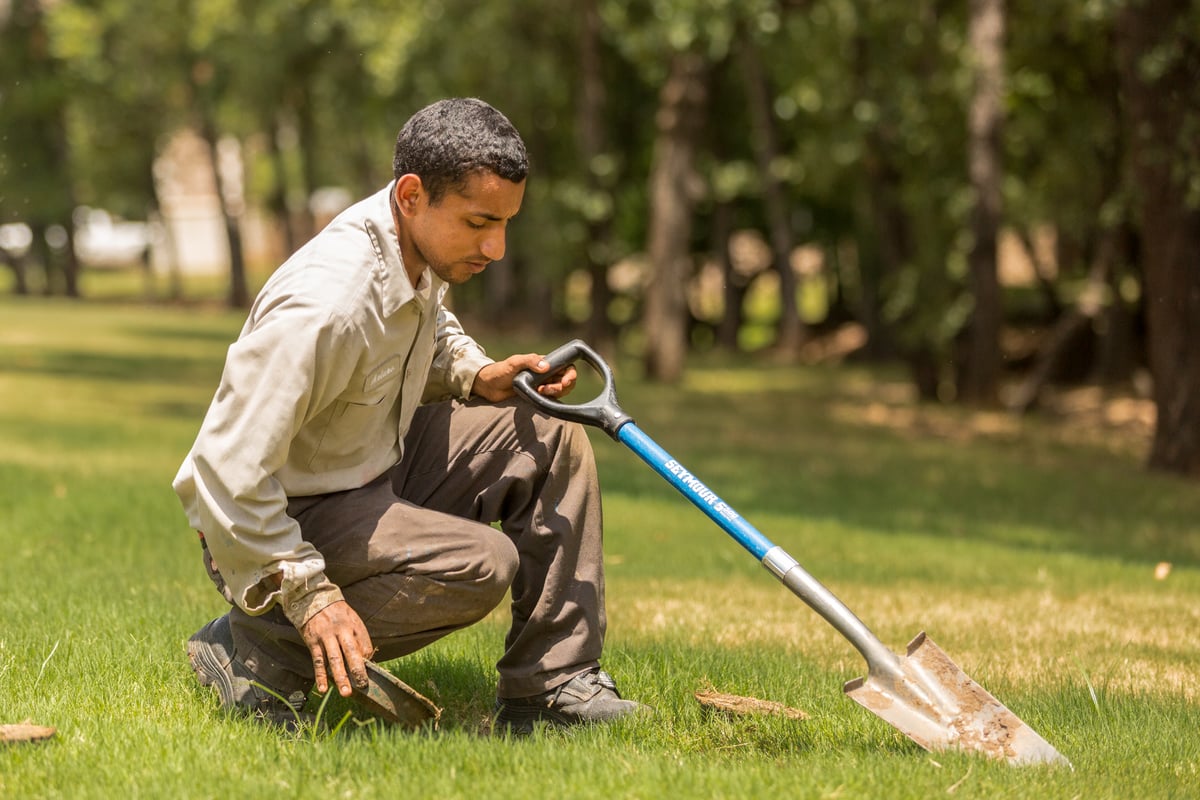
We’ll run the system to assess this. It’s important to recognize that your landscape is evolving so what works for it one year might be different the next. As plants grow and change, so can their watering needs. In fact, oftentimes mature plants require less water than young ones, so you want to make sure that a professional is adjusting your coverage to your changing needs.
An inspection will also involve checking to see whether anything is broken or functioning improperly. A broken head or a leak can be the culprit behind wasted water. It might be as simple as something that got knocked out of line—but it could be causing you enough of a problem that it’s wasting water.
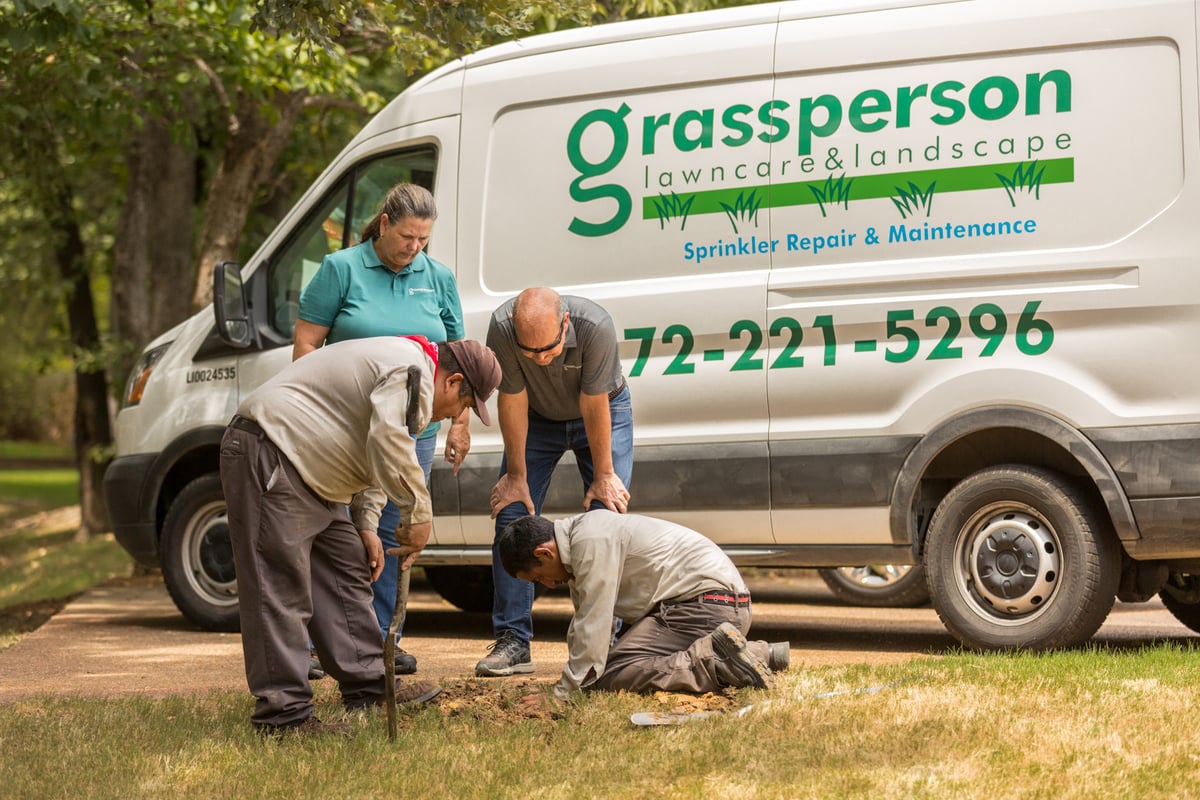
At the time of an inspection, we’ll check the spray heads and the rotors above ground. We also look below ground at the lateral lines and the main lines to make sure that the water pressure is sufficient and everything is functioning properly.
An underground leak usually becomes noticeably evident by water pooling in your lawn or landscape somewhere.
4. Upgrade Your Sprinkler System
Finally, we would be remiss in not mentioning that if you are operating an older irrigation system, you are very likely wasting unnecessary water. Today, smart irrigation technology is available that offers much more efficient watering.
Smart irrigation systems are those that tailor their watering schedules and run times to the actual conditions, not just blindly following a preset schedule. A smart irrigation controller that makes these types of adjustments will significantly improve water efficiency.
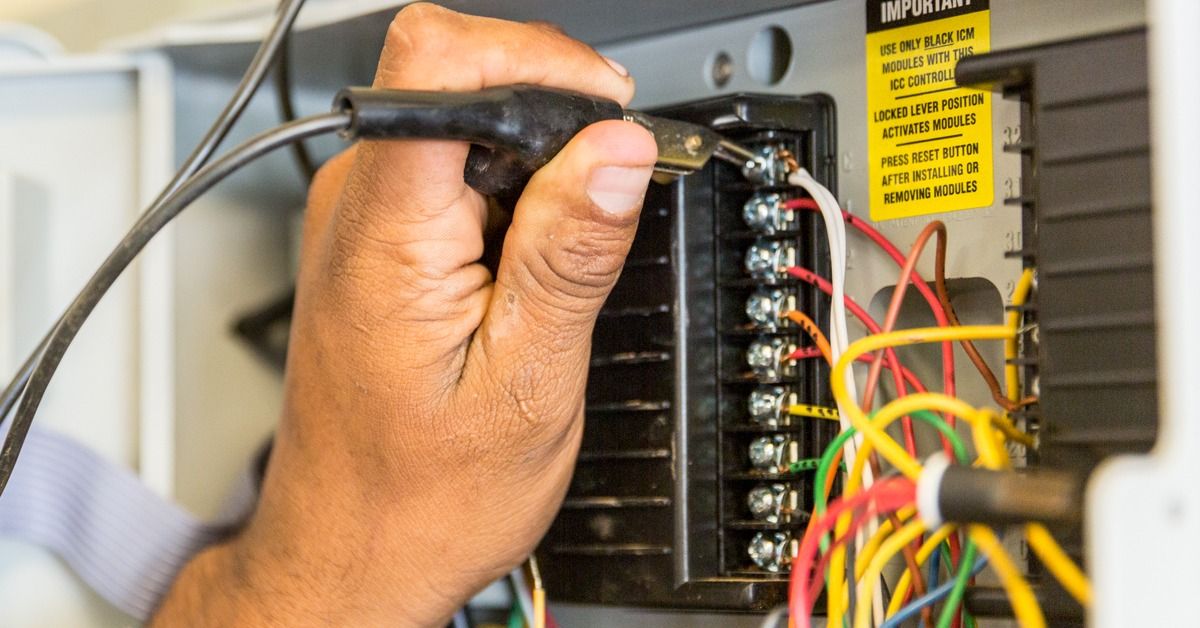
We’ve seen tremendous advances in smart irrigation in the last 5 years. The capabilities have come so far. With technology such as rain and freeze sensors, as well as soil moisture sensors, the system can make real-time changes. Many systems also utilize data coming from the local weather station in terms of previous and upcoming conditions.
This all adds up to better watering. Instead of having your irrigation system kick on during a rainstorm (which is so frustrating!), your system will adjust automatically.
We have even found that some municipalities that have water restrictions will allow those restrictions to be overridden if you have a smart controller that you’ve registered with their county. That’s because they know smart controllers are helping with water conservation by putting out exactly what your property needs (and no more).
Ask a Professional Landscaper to Help You Conserve Water
Saving water adds up to conserving a precious commodity and saving money. Hopefully these water conservation tips have helped give you some ideas on how you can make meaningful changes. Of course, we understand it can be difficult to navigate the balancing act of giving your lawn and landscape what they need to perform their best while also avoiding overwatering or other water mistakes.
Instead, you might prefer to hand those worries over to a pro.
At Grassperson, our irrigation maintenance services are part of our Total Maintenance Package, which will cover many of your property maintenance needs.
We understand that you don’t have the time to be worrying about the nuances related to irrigation systems and how to get yours to perform its best without wasting any water in the process. You just want to be able to choose a company that knows its stuff and can get you the best possible results for your investment.
By choosing this package, you can let go of the worries associated with your property’s watering needs and get back to just enjoying it for its beauty. You’ll be able to feel good that you’re not wasting unnecessary water, either. Instead, you’ll know each drop of this precious resource used on your property is going to good use.
Ready to stop worrying about irrigation and water conservation on your property? You can leave it up to a pro who knows exactly what your Northern Texas property needs. Get a Free Quote, then you can enjoy the best lawn and landscape on the block!

